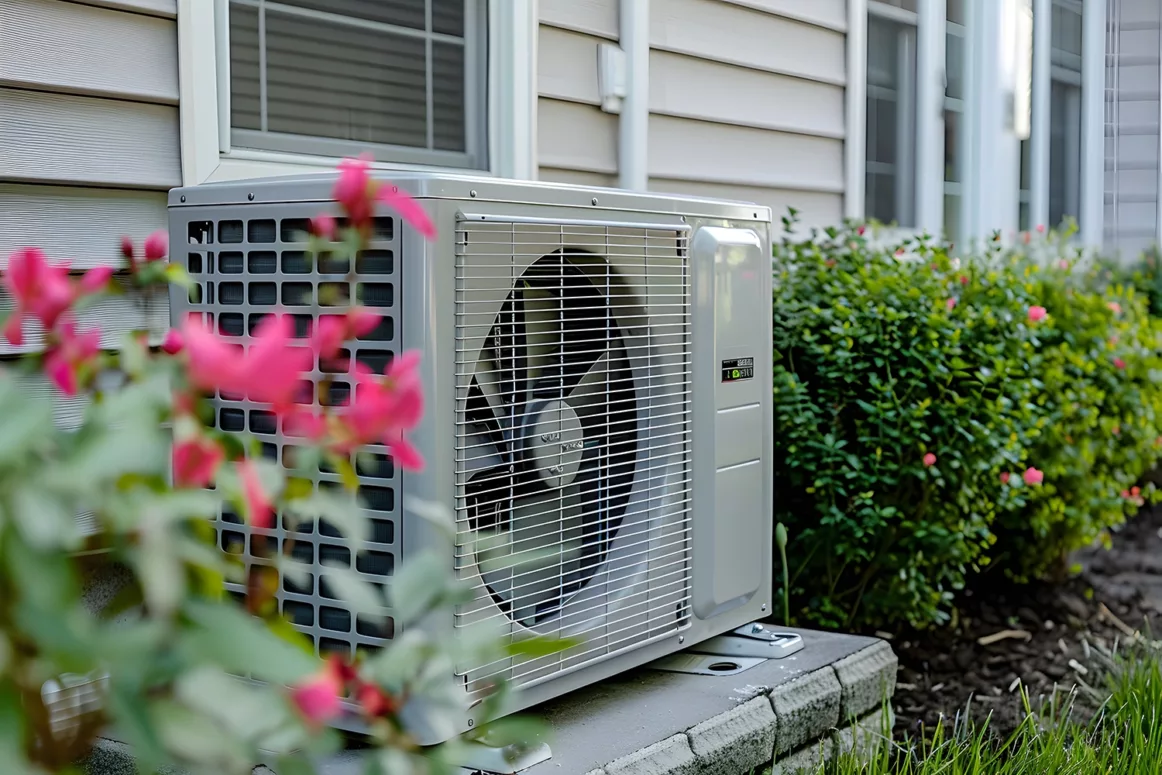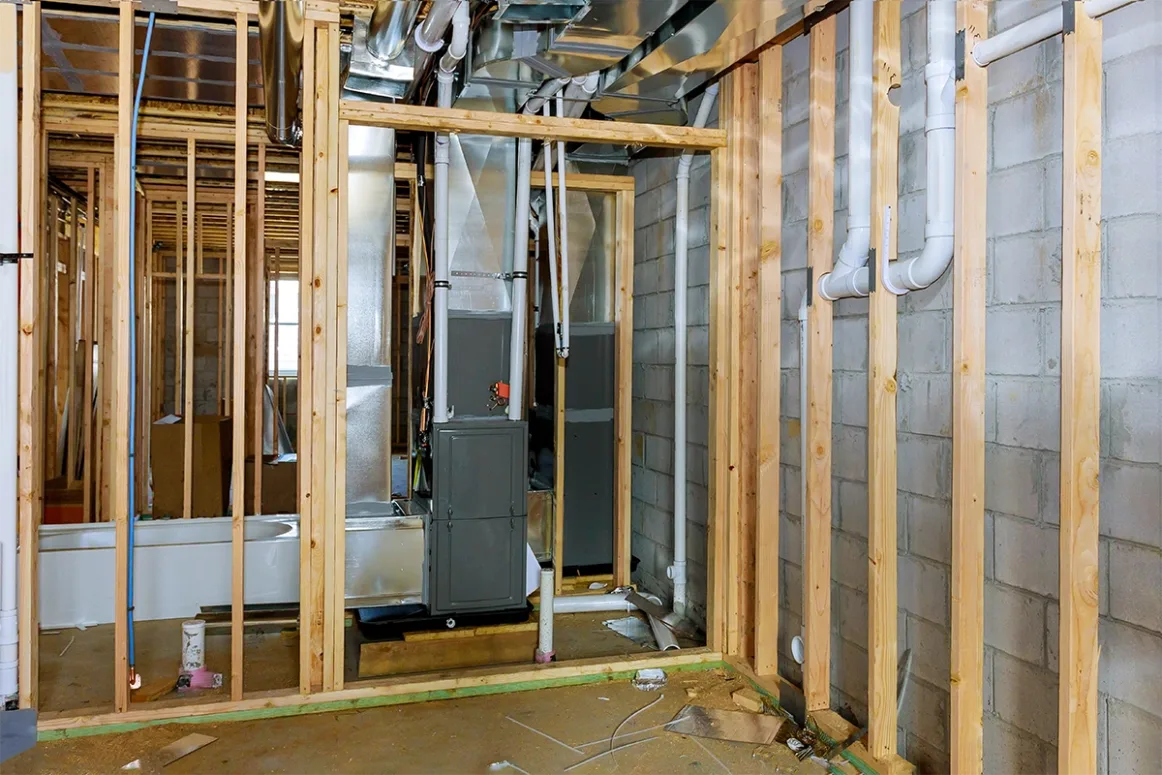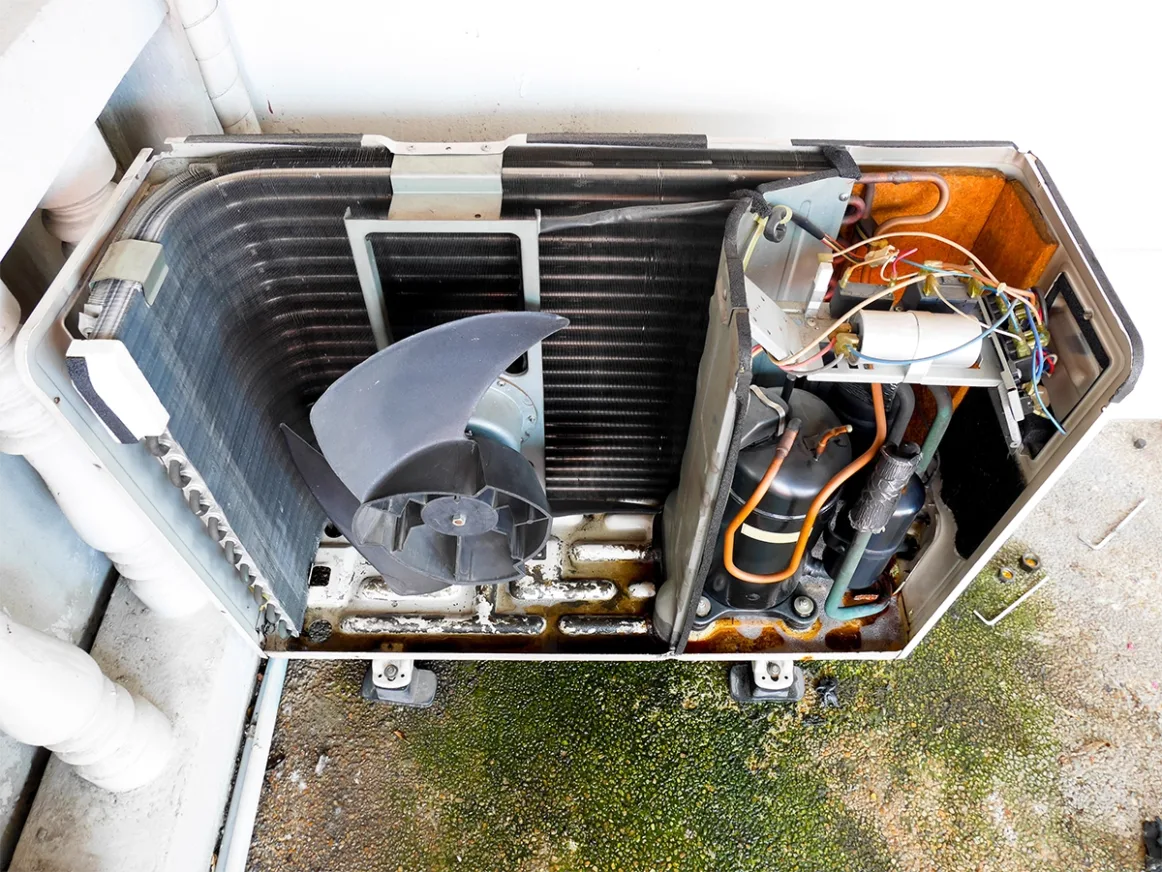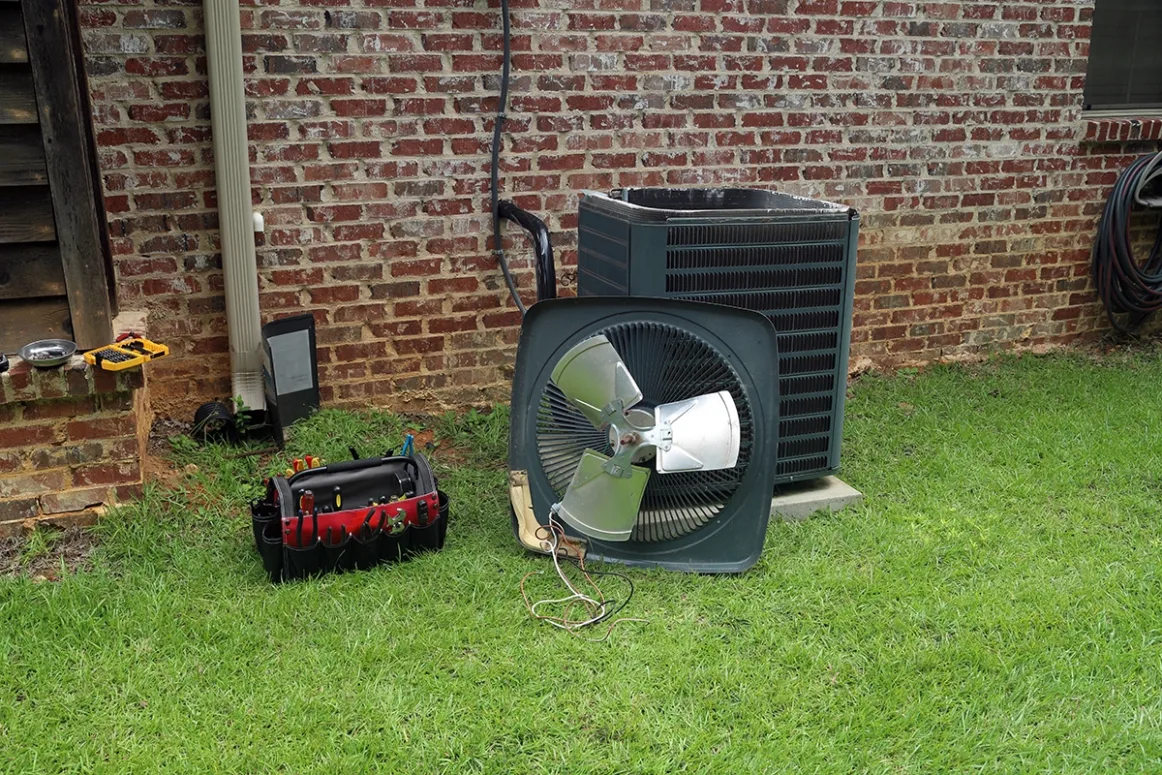
HVAC Condenser: Your Essential Guide to Understanding and Proper Maintenance
Every HVAC system has a significant component: the HVAC condenser. Familiarity with its operation, care, and problems can help optimize the system’s performance. This guide will cover all the details about the HVAC Condenser, its importance, and how to maintain it.
What Is an HVAC Condenser?
Every heating, cooling, or heat pump system includes an HVAC condenser. Its function is to remove heat from inside your house and transfer it outside. This heat rejection component is situated outdoors from the house. It is part of an external unit of an HVAC system and is complemented by an evaporator, which is found indoors.
In the operation of the air conditioning or heat pump unit, the condenser gets gas from a compressor unit, which condenses and pumps gas into the air used to absorb heat from the house. This is essential in relieving indoor temperatures during summer and warming the house in winter.
What does the HVAC Condenser do?
The operations associated with an HVAC condenser are grouped under the following broad categories:
Refrigerated Flow: The first step is when the compressor located in the condenser unit compresses the refrigerant gas present. This gas is made to flow through the condenser coils.
Heat Transfer: The refrigerant passes through the condenser’s coils and, in this case, releases its heat to the outer atmosphere. The coils enhance heat loss so the refrigerant may condense to a liquid state.
Dewarding Effect: After all the refrigerant has been condensed, it is let back into the evaporator coil in the house to capture heat, and the operation runs on. The cold air from the evaporator coil is blown into the house where such temperatures are required.
Fan-Assisted: The condenser itself blows air over the coils to improve the rate of heat exchange. This fan ensures that all the separate cooled refrigerant releases heat into the ambient air.
Significance of HVAC Condensers
The HVAC condenser is fundamentally needed to achieve the appropriate thermal comfort within the confines of a building. Here’s the reason why it is very important:
Effective Heat Rejection: Since the condenser removes heat from the refrigerant, it improves the performance of the HVAC system. When the condenser functions efficiently, your system can cool or heat your house efficiently, thus keeping indoor temperatures constant.
Prolonging System Life: Maintaining the condenser device may oppose the common practice of reducing operating costs and expanding the lifetime of the HVAC unit. Properly maintained condensers will not stress other system parts, eliminating the chances of expensive repairs or replacement of parts or the entire system before the end of its useful life.
Cost Effectiveness: A properly working and equipped condenser improves the cost-effectiveness of the heating, ventilating, and air conditioning unit. For the system’s benefit, most condensers keep the heat exchange efficiency high, which helps in efficient power use.
Common Concerns with HVAC Condensers
As durable as they are, HVAC condensers, even with minimal mechanical components, can have some issues affecting operations. Some common problems include:
Blocked Coils: The condenser coils will likely hold debris and dust after a season’s use. Such accumulation lowers the heat exchange efficacy, causing the system to be overworked and increasing its energy consumption. The coils need to be cleaned more frequently to ensure they work well.
Faulty Fan: The fan is a vital piece in the condenser unit. It is responsible for sliding air across the coils. Reversing fan effects can cause the condenser to be removed inadequately due to blowing hot air. Violation of this guideline may compromise fan performance. It is advisable to examine the fan periodically.
Refrigerant Leaks: Leakages of refrigerants may halt the cooling mechanisms, resulting in inefficiency and even harming the compressor. Call SandyAlex as soon as you notice that the cooling power is decreasing or you hear unfamiliar sounds from the system. It could be not working correctly—a refrigerant–free diesel power tractor might give you leaks.
Electrical Issues: various electrical components, including internal capacitors or contactors, can influence condensing unit performance. Sometimes, this may cause the unit not to switch on or work properly. Day-to-day inspections may assist in detecting such anomalies and help prevent further damage.
Maintaining Your HVAC Condenser
HVAC condenser requires some regular maintenance to ensure that it is at its best. These include:
Regular Cleaning: Dirt accumulation and other obstruction prevent condenser coil and area of use. Make sure that there are no obstruction such as leaves, debris and so on within the unit.
Check for Presence of Electrical Parts: Periodic inspections of the electrical parts and connections are advised to ensure that there are no mechanical wear or breakdowns. Replace any obscurely but dangerously broken parts as soon as possible to mitigate threats on the overall system.
Professional Inspections: Invite professional HVAC technicians for regular checks and repair exercises. Professional maintenance helps to fix any sitting problems before they arise to high magnitudes, enabling the condenser to be effective in its operations throughout the set period.
In a Nutshell
The HVAC condenser is an integral unit, and one must understand how and for what purpose it will be used. Timely maintenance and repairs are critical to the axial flow condenser working optimally, as well as the whole HVAC system. Taking care of your condenser will optimize the operation of heating and air conditioning system, but will also increase its service life, therefore saving time and money in the future.
In Canton, GA, for quality HVAC services including professional repairs and maintenance, Russell Heating and Air is the company to call. Call us today for a professional HVAC inspection and control condition of the condenser and the whole HVAC system in place.





